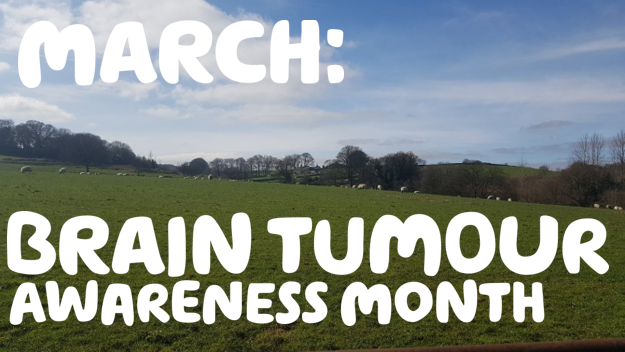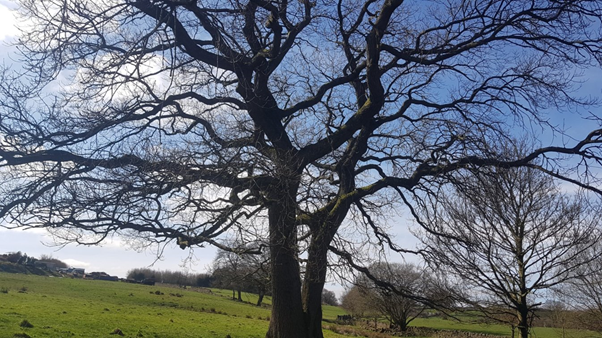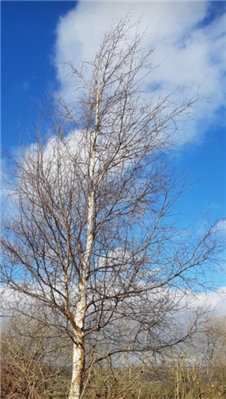
It's Brain Tumour Awareness month in March, so in this Community News Blog, we'll be highlighting related content in the Community and signposting to useful resources. We know it can be hard to know where to turn when you or a loved one has been diagnosed, so we hope you'll find some useful pointers in this blog.
According to our information and support pages, there are many different types of brain tumour. They are often named after the cell they develop from or the part of the brain they start in. You can read more about the different kinds of brain tumours on Macmillan's information and support pages here.
In the Community, we have several groups where you can find support if you or a loved one are diagnosed with a brain tumour. Our primary brain cancer group is for anyone affected by a brain tumour diagnosis, including friends and family supporting a loved one who has been told they have this kind of tumour.
When Community member Twinkle20 found the site, they were feeling in shock and scared about the future.
'This whole thing has been a complete whirlwind and shock and I don’t want to live in fear of future tumours and more cancer.' - Twinkle20, brain cancer group.
After introducing themselves and telling their story in the brain cancer group, Twinkle20 received replies from several Community members, offering support. Member Sunshine dreams had been diagnosed with a grade 3 astrocytoma and felt they could really relate to Twinkle20's story.
'I wish you lots of positivity and I hope things go as well as possible for you, take care of yourself x if you want to chat it might be of comfort for us both?' - Sunshine dreams, brain cancer group
We know it can mean so much to be able to share your experience and get support from people who understand. It sounds like these members really benefitted from meeting each other in the Community cancer forum and having the opportunity to share much needed support.
'Sounds like you are handling it all like an absolute warrior. Keep positive and doing what your doing. Sending all the positivity and best to you and your son along your journey. I hope you have a long and healthy life together!' - Twinkle20, brain cancer group.
If you'd like to read the full thread, you can find this by clicking here.
Member Ata also came to the Community recently after being diagnosed with a glioblastoma and also posted in the brain cancer group for support.
'I was looking for this kind of a forum to share my experiences and learn from others. I was diagnosed with brain cancer in May this year, (a glioblastoma level 4) after experiencing a sudden loss of feeling in my finger and two near falls, I now have in limited mobility in that arm. I have read from others on this forum that they have had a similar experience.' - Ata, brain cancer group.
Glioblastoma multiforme (GBM) are a grade 4 glioma, a brain tumour which develops in the supporting cells (glial cells) in the brain or spinal cord. You can read more about the different types of glioma on Macmillan's information and support pages here. In addition to joining the brain cancer group, you can also find support for GBM in the dedicated glioblastoma multiforme brain tumours group in the Community.

In addition to finding support from others going through similar experiences, you can also find help from Macmillan experts in the Community. Member KirenK received support from Fiona, Cancer Information Nurse Specialist in the Ask a Nurse sessions after receiving a brain tumour diagnosis. KirenK was concerned about their prognosis and asked for advice. Fiona was able to tell them that each person is affected differently by their tumour, prognosis can depend on age, general health and treatment. Two people, with the same type and stage of cancer can have a different prognosis. That’s why it is difficult for specialists to say how long a person is likely to live for.
'...each person is affected differently by their tumour, prognosis can depend on age, general health and treatment. Two people, with the same type and stage of cancer can have a different prognosis.' -Fiona, Cancer Information Nurse Specialist in Ask a Nurse
Nurse Fiona also signposted to The Brain Tumour Charity’s information pack which might also be helpful for anyone recently diagnosed, or supporting someone with a brain tumour diagnosis.
You can read the full question and answer from Fiona to KirenK by clicking here . If you have your own questions about brain tumours, or any other query related to cancer, you can get expert support by posting in any of the open Ask the Expert sessions.
A primary brain tumour is a tumour that starts in the brain, whereas a secondary brain tumours start somewhere else in the body and spread to the brain. Secondary brain tumours are sometimes called brain metastases. If you, or a loved one, has been diagnosed with secondary brain cancer, you can find dedicated support in our secondary brain cancer group.

Community member Stillcrazy75 visited the secondary brain cancer group recently to ask for some support when their dad was diagnosed with secondary brain cancer, following an initial diagnosis of stomach cancer.
'Hi everyone, I was hoping someone may have a positive experience to help support myself and my family.' - Stillcrazy75, secondary brain cancer group
Stillcrazy75 received support from several Community members, who advised they may also be able to find support in the primary cancer groups.
If you're supporting someone with a brain tumour, it's really important that you're getting the right support for yourself too. You can find dedicated support in the family and friends group, or if you're caring for someone directly, in our carers only group.
To find all the information and support from Macmillan around brain tumours, you can go to our information and support pages here.
Brain tumours can also affect children. If you need information about brain tumours in children, we recommend on our main website that you contact the Children's Cancer and Leukaemia group (CCLG) who are a separate charity and the experts in childhood cancer.
We hope this blog helps raise awareness for brain tumours and helps you find the right support from the Community, Macmillan and other charities. If you have any comments or questions, you can reply below and we'll do our best to respond to you as soon as we can. If your enquiry is more urgent, you can contact the team at community@macmillan.org.uk
Whatever cancer throws your way, we’re right there with you.
We’re here to provide physical, financial and emotional support.
© Macmillan Cancer Support 2026 © Macmillan Cancer Support, registered charity in England and Wales (261017), Scotland (SC039907) and the Isle of Man (604). Also operating in Northern Ireland. A company limited by guarantee, registered in England and Wales company number 2400969. Isle of Man company number 4694F. Registered office: 3rd Floor, Bronze Building, The Forge, 105 Sumner Street, London, SE1 9HZ. VAT no: 668265007